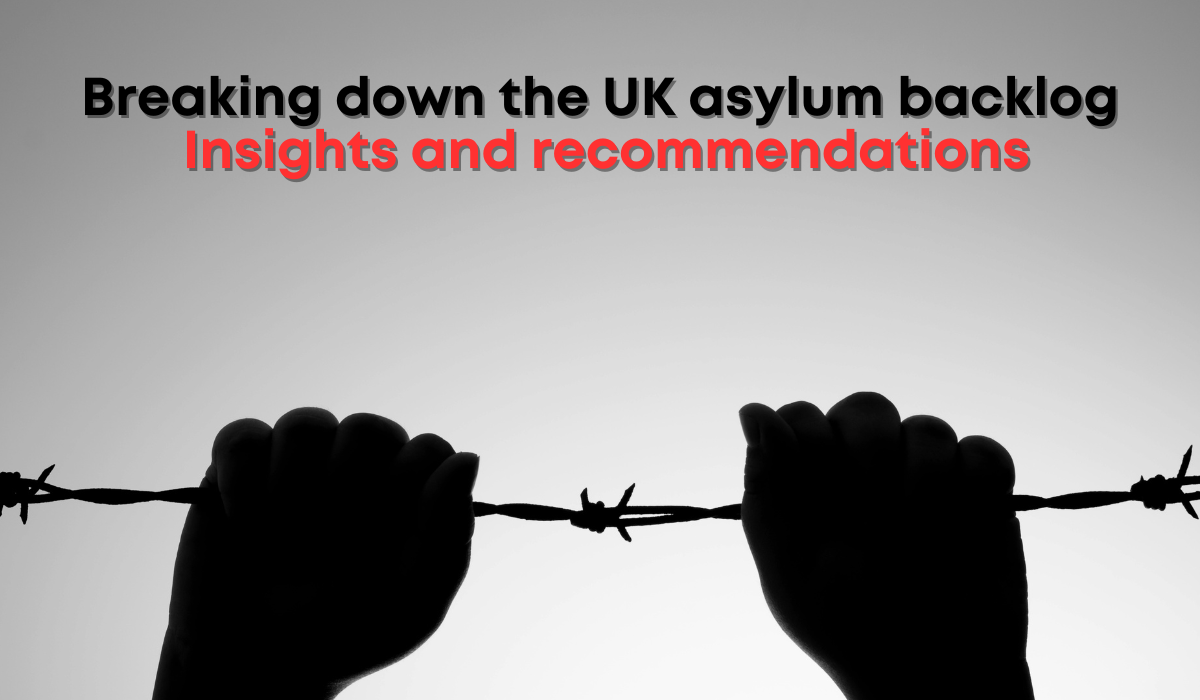As the UK government implements the Illegal Migration Act 2023 (Amendment) Regulations 2024, it’s a good time to reflect on the successes and failures of last year’s efforts to clear the UK asylum backlog. With the asylum process now formally resuming, there are significant lessons to learn to ensure a fair and efficient system moving forward.
Current State of the Backlog
According to the Home Office, 126,106 people applied for asylum between March 2023 and July 2024. While some cases have been decided, the UK asylum backlog still stood at 89,985 cases involving 125,385 people as of July 16, 2024. The Home Secretary has pledged to accelerate the decision-making process to reduce this backlog. However, it’s essential to consider the availability of legal aid lawyers, whose role is crucial for the secure and lawful operation of the asylum system.
Questionnaires: A Sensible Move with Caveats
Using questionnaires for high-grant countries to expedite asylum grants without interviews is a commendable strategy. This process has seen significant improvements since its initial launch. However, there’s been a worrying trend of individuals being invited to multiple asylum interviews despite completing questionnaires. The questionnaire process should lead to decisions without unnecessary interviews, preventing additional burdens on the already stretched legal aid sector.
Addressing Refugee Homelessness
One of the most pressing issues is the risk of newly recognised refugees becoming homeless. Statistics reveal a 363% increase in homelessness among those required to leave asylum accommodation in the last quarter of the previous year, affecting 5,140 households. The current 28-day “move on” period, during which a person can continue to access asylum support after being granted leave, is grossly inadequate for achieving self-sufficiency. Charities have long advocated for extending this period. The recent change allowing Universal Credit claims with a grant letter and asylum registration card is a step in the right direction. However, allowing asylum seekers to work in roles beyond the Immigration Salary List could further reduce the risk of homelessness and alleviate the pressure on Universal Credit.
Controversial Claim Withdrawals
Last year, over 24,000 asylum claims were withdrawn, many deemed so by the Home Office. Initially, this tactic operated on a dubious legal basis until immigration rules were amended to legitimise it. Recent guidance changes have made claim withdrawals by the Home Office even easier, often against the wishes of asylum seekers. This practice must stop immediately, and barriers should be removed for those seeking to reinstate their asylum claims, avoiding the necessity of fresh claims.
The Appeals Backlog and Legal Aid Crisis
Focusing on high-grant nationalities first while leaving time-consuming refusals for later has significantly impacted the First-tier Tribunal, which experienced a surge in asylum appeals in early 2024. The lack of available legal aid lawyers exacerbates this issue, leading to longer processing times and risking justice denial for many deserving individuals. The First-tier Tribunal’s refusal to adjourn cases for appellants seeking legal representation compels many to represent themselves, often inadequately. This problem is now extended to the Upper Tribunal as more self-represented appellants seek to challenge their initial dismissals. A robust legal aid sector is essential to prevent inefficiencies and ensure justice. With numerous mistakes from 2023 fresh in our minds, there is no excuse for repeating them. Many issues could be mitigated with a fully functioning legal aid sector. It is crucial to remember that these are not mere numbers; these are human lives at stake. Ensuring fair and swift decisions on asylum claims is of the utmost importance, protecting individuals from persecution and offering them a chance at a safe and dignified life.
Get in touch: For a comprehensive understanding of your options or queries on UK immigration matters, contact GigaLegal Solicitors at 02074067654 or click here to book a no-obligation consultation with an immigration expert.


